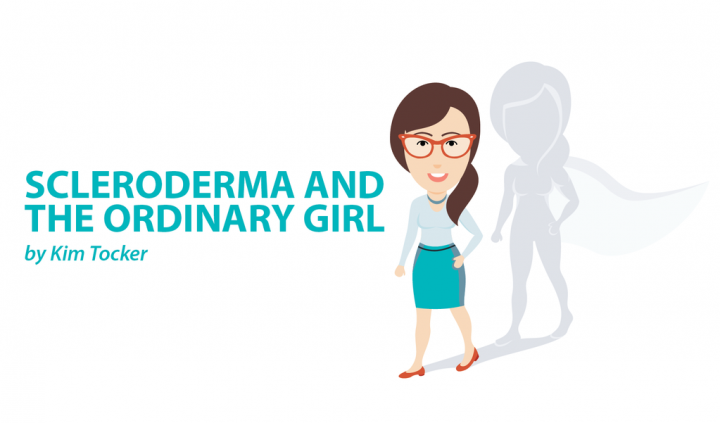Self-talking My Way Through My Scleroderma

For years, when I was a practicing counselor, I used cognitive behavioral therapy (CBT) as a part of my eclectic approach to to working with clients.
One aspect of CBT is understanding what you subconsciously or consciously believe about certain problematic situations in life. The next step is to take special note of the way you are talking to yourself about your beliefs.
CBT can be used to help manage the difficult aspects of chronic illness; help the patient to cope with things such as pain, depression, and anxiety — sometimes it even changes the way they view their disease.
We all have conversations in our heads, and believe me, it does pay to listen to them. Our thoughts very often show up as discussions and consultations with ourselves, and are continuous.
For example, just the other day I found myself being really nasty to my joints. They had been pretty painful, as I’ve been unwell lately, and I found myself telling them how useless they were, that they were stupid to be giving me so much pain, and that I hated them. The entirety of this tirade took place in my head.
So as a challenge, I decided to actually say that stuff to myself out loud to see if I really meant what I found myself thinking.
It was pretty enlightening.
As soon as the words in my head came out through my mouth, I understood the power of my thoughts in a conscious and experiential way. Additionally, I immediately noticed the way I ended up feeling, which of course was pretty negative.
Not a great way to begin my day.
A big part of managing my disease is my self-care, and in my columns I belt on about it rather a lot. However, after hearing out loud the way my thinking has been going lately, I realized I have let this aspect of it really slip.
In the interests of improving my pain levels and the way I am coping with my scleroderma in general, I decided to get creative and invent a new therapy tool. It was designed to help myself improve things by using my own voice to try and turn things around in a slightly different way.
It’s been years since I have recorded myself talking. A friend and I used to play with an old tape recorder when we were kids. We spent hours giggling over the sounds of our voices and the funny expressions we used, and invented all manner of stories and jokes about almost everything.
This time around, the equipment I have available is much more sophisticated. My laptop even has a program that has enabled me to add background music to my monologue.
The narration consists of an entirely different way of speaking to myself, including my joints and other parts of me that are in pain. My tone is kind, and I have tapped into my creative ways of thinking about life, including some self-invented guided meditations.
I included some imagery that made sense to me, such as rubbing out the red lines of my pain with an eraser. I also invite my personal spiritual beliefs to have a much clearer and encouraging voice when I am feeling miserable.
To say my recordings have been helpful despite the initial awkwardness of hearing my voice on tape is an understatement. In fact, the experience of spending time with myself this way has been very powerful. I am seeing big improvements in how I manage my scleroderma.
I’d like to encourage you to give it a whirl. Sometimes with a rare and unusual disease, the things that can help us may also need to be slightly unusual. Being your own therapist and meditation guide may not be something you want to try initially, but it might be exactly what you need!
***
Note: Scleroderma News is strictly a news and information website about the disease. It does not provide medical advice, diagnosis, or treatment. This content is not intended to be a substitute for professional medical advice, diagnosis, or treatment. Always seek the advice of your physician or other qualified health provider with any questions you may have regarding a medical condition. Never disregard professional medical advice or delay in seeking it because of something you have read on this website. The opinions expressed in this column are not those of Scleroderma News or its parent company, Bionews Services, and are intended to spark discussion about issues pertaining to scleroderma.







Comments
Susan Oleneack
What a smashing idea!It is so true that attitude is very important when dealing with this chronic illness.